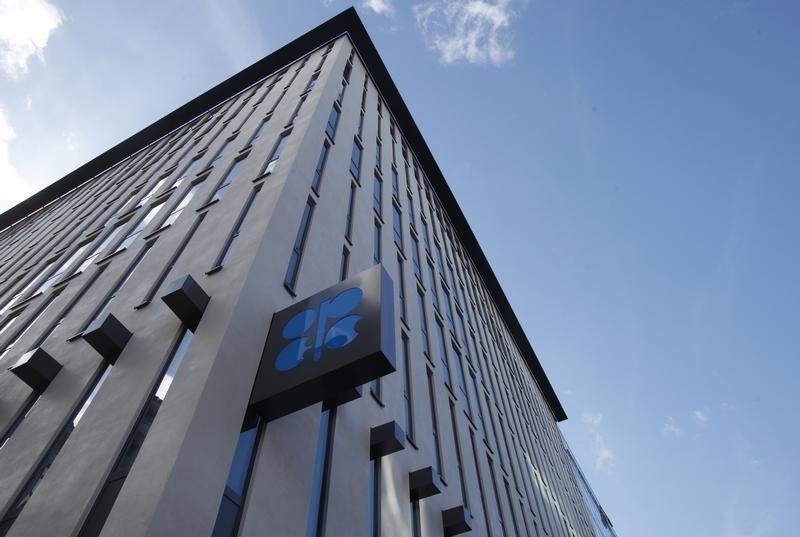Investing.com - Crude oil futures edged lower on Thursday, amid growing indications the Organization of Petroleum Exporting Counties will keep production levels unchanged when it meets on Friday, despite ongoing concerns over ample global supplies.
On the ICE Futures Exchange in London, Brent oil for July delivery inched down 20 cents, or 0.31%, to trade at $63.60 a barrel during European morning hours after hitting an intraday low of $63.39, the weakest level since May 29.
A day earlier, London-traded Brent prices tumbled $1.69, or 2.58%, to end at $63.80 after a senior OPEC delegate said that there is "consensus" among Gulf OPEC countries to keep output levels unchanged above 30 million barrels per day.
Elsewhere, on the New York Mercantile Exchange, crude oil for July delivery fell to a daily low of $59.17, a level not seen since May 29, before trading at $59.48, down 16 cents, or 0.28%.
On Wednesday, Nymex oil prices lost $1.62, or 2.64%, to close at $59.64 despite bullish U.S. oil inventory data.
The U.S. Energy Information Administration said in its weekly report that U.S. crude oil inventories fell by 1.9 million barrels last week, the fifth straight weekly decline.
Market analysts' expected a crude-stock fall of 1.7 million barrels, while the American Petroleum Institute late Tuesday reported an increase of 1.8 million barrels.
Total U.S. crude oil inventories stood at 477.4 million barrels, remaining near levels not seen for this time of year in at least the last 80 years.
Meanwhile, the spread between the Brent and the WTI crude contracts stood at $4.12 a barrel, compared to $4.16 by close of trade on Wednesday.
In the currency market, the U.S. dollar index was up 0.2% at 95.59, moving off a more than one-week low of 95.23 hit in the previous session.
Market participants were looking to the weekly report on U.S. jobless claims due later in the day, as well as Friday's nonfarm payrolls data for further indications on the strength of the country's job market.
On Wednesday, payroll processing firm ADP said U.S. non-farm private employment rose by 201,000 last month, just above expectations for an increase of 200,000.
The upbeat data raised hopes that the economy was regaining strength after contracting in the first quarter, fuelling speculation that the Federal Reserve could raise rates as soon as September.
Developments surrounding talks between Greece and its international creditors remained in focus.
Greek Prime Minister Alexis Tsipras rejected on Wednesday proposals by European leaders and the International Monetary Fund to help unlock more aid.
Athens has to make four payments totaling more than €1.5 billion to the IMF this month. Tsipras indicated that Greece won’t miss the first installment due Friday.
